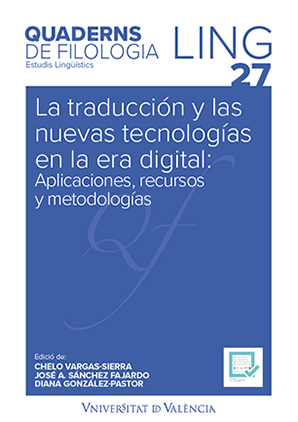The Effect of Paper vs. Screen-Based Translation Proofreading on Error Detection
DOI:
https://doi.org/10.7203/qf.0.24620Keywords:
error, detection, translation, proofreading, screen, paper Abstract
Abstract
Although it is assumed that written information is better processed in print, recent studies indicate that digital reading might be as effective due to a change in user behaviour. Considering both the fact that current practice trends still advocate for the printing of translated texts for revision purposes and the lack of dedicated studies in the field of translation, this study aims to identify any differences regarding the effect of paper-based vs. screen-based translation proofreading. Thus, a group (n = 70) of students from the University of Alicante, Spain, was asked to proofread a translation containing a number of both non-linguistic (i.e., which could be identified without any specific language proficiency) and linguistic errors (i.e., for the identification of which a certain degree of foreign language proficiency is required), which was presented before them digitally, i.e. via a computer screen, whereas another group (n = 73) performed the same task having both the translation and the original document in print. The statistical analysis carried out indicates that proofreading on screen was more effective for both types of errors, especially for the non-linguistic one.
 Downloads
Downloads
Downloads
Published
How to Cite
-
Abstract737
-
PDF (Español)386
Issue
Section
License
 Este obra está bajo una licencia de Creative Commons Reconocimiento-NoComercial-SinObraDerivada 4.0 Internacional.
Este obra está bajo una licencia de Creative Commons Reconocimiento-NoComercial-SinObraDerivada 4.0 Internacional.
Authors who publish with this journal agree to the following terms:
- Authors retain copyright and grant the journal right of first publication with the work simultaneously licensed under a Creative Commons Attribution License that allows others to share the work with an acknowledgement of the work's authorship and initial publication in this journal.
- Authors are able to enter into separate, additional contractual arrangements for the non-exclusive distribution of the journal's published version of the work (e.g., post it to an institutional repository or publish it in a book), with an acknowledgement of its initial publication in this journal.
- Authors are permitted and encouraged to post their work online (e.g., in institutional repositories or on their website) prior to and during the submission process, as it can lead to productive exchanges, as well as earlier and greater citation of published work (See The Effect of Open Access).




